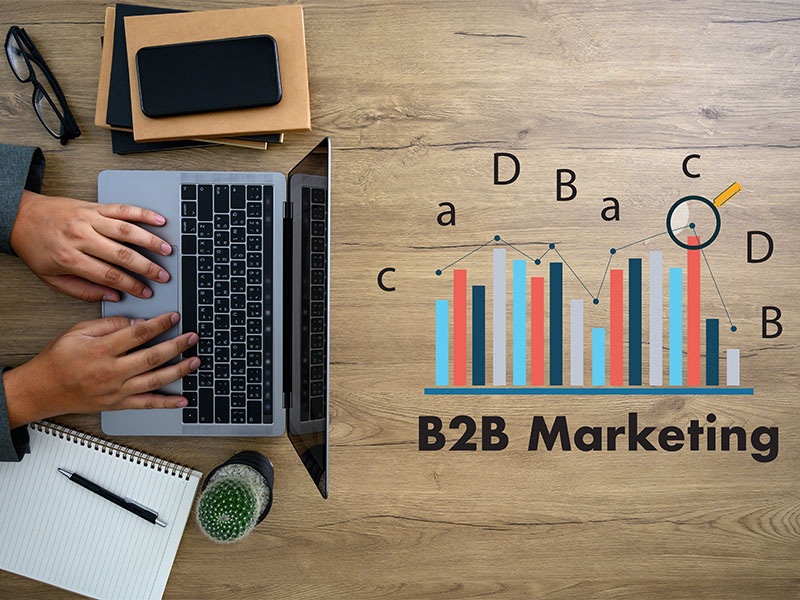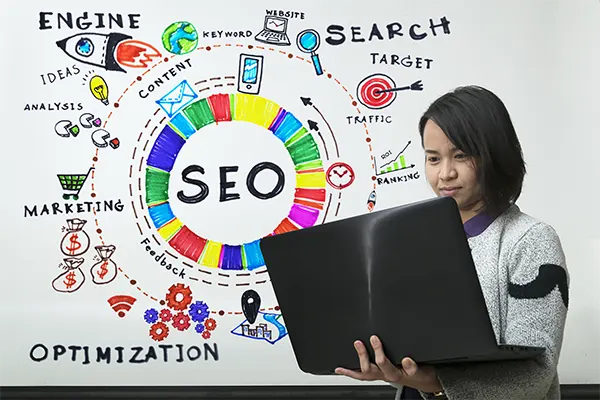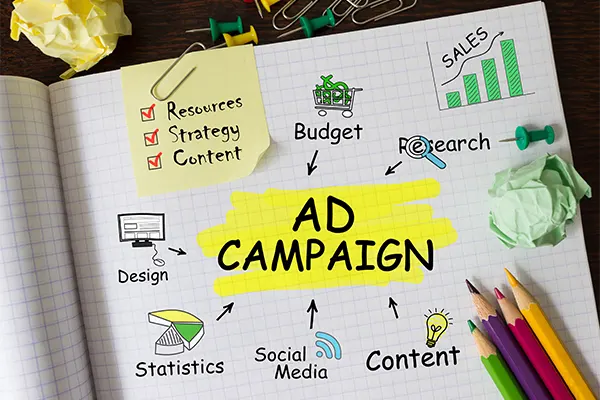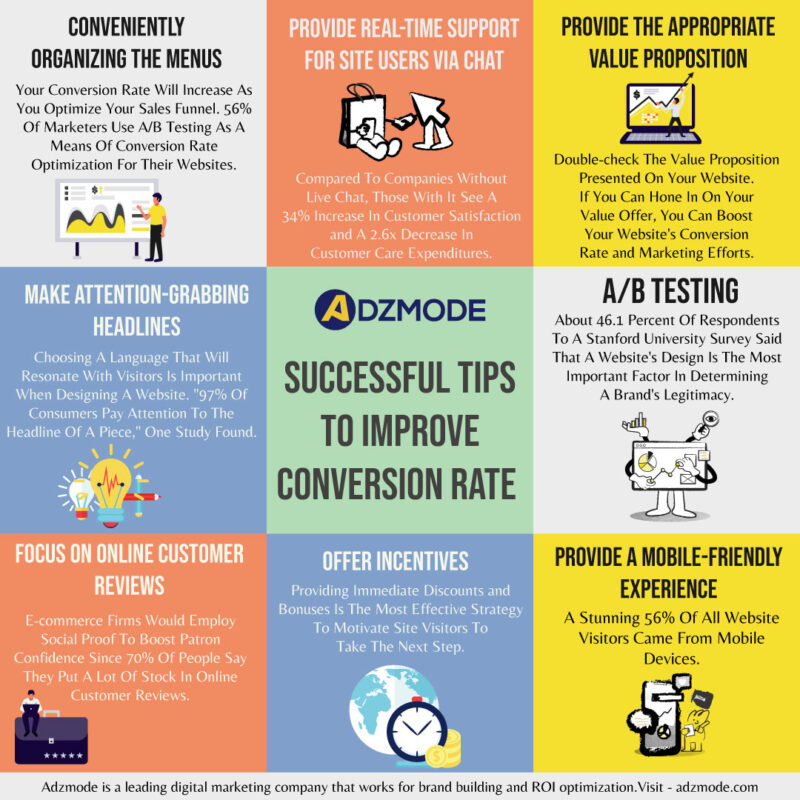
In the competitive landscape of business-to-business (B2B) marketing, standing out and effectively reaching your target audience can be challenging. Unlike business-to-consumer (B2C) marketing, which focuses on individual customers, B2B marketing involves engaging with other businesses, requiring a more strategic and tailored approach. The right B2B digital marketing strategies can significantly enhance your brand’s visibility, drive lead generation, and ultimately, boost your bottom line.
The digital age has transformed the way businesses operate, and B2B marketing is no exception. Traditional marketing methods, while still relevant, need to be complemented with robust digital strategies to stay competitive. In this comprehensive guide, we will explore the most powerful B2B digital marketing strategies for success. From leveraging content marketing and SEO to harnessing the power of social media and data analytics, we’ll provide actionable insights and practical tips to help you navigate the complexities of B2B digital marketing.
Understanding the B2B Market
Before diving into specific strategies, it’s essential to understand the unique characteristics of the B2B market. Unlike B2C, where decisions are often influenced by emotions and personal preferences, B2B transactions are typically driven by logic, budget considerations, and the potential for long-term relationships.
Key Characteristics of B2B Marketing
- Longer Sales Cycles: B2B sales cycles are generally longer and more complex than B2C, involving multiple decision-makers and a higher level of scrutiny.
- Relationship-Driven: Building and maintaining relationships is crucial in B2B marketing. Trust and reliability often play a significant role in decision-making.
- Higher Transaction Values: B2B transactions usually involve higher monetary values and more significant commitments compared to B2C transactions.
- Targeted Audience: B2B marketing targets specific industries, companies, and key decision-makers within those organizations.

Importance of Digital Marketing in B2B
Digital marketing offers several advantages for B2B companies, including:
- Increased Reach: Digital channels allow businesses to reach a global audience.
- Cost-Effectiveness: Digital marketing can be more cost-effective than traditional methods.
- Measurable Results: Digital campaigns can be tracked and measured, allowing for continuous optimization.
- Personalization: Digital tools enable personalized marketing, enhancing engagement and conversion rates.
Visit: why omni channel marketing for startups
Key B2B Digital Marketing Strategies
1. Content Marketing

Content marketing is at the heart of B2B digital marketing strategies. High-quality, relevant content attracts, engages, and nurtures potential customers throughout the sales funnel.
Types of Content for B2B Marketing
- Blog Posts: Regularly updated blogs provide valuable information and establish your brand as an industry thought leader.
- Whitepapers and E-books: In-depth resources that offer detailed insights into industry trends and challenges.
- Case Studies: Success stories that showcase your solutions in action, providing social proof and building credibility.
- Webinars and Videos: Interactive and visual content that can explain complex concepts and engage your audience.
- Infographics: Visual representations of data and information that are easy to understand and share.
Best Practices for Content Marketing
- Understand Your Audience: Research your target audience’s pain points, needs, and preferences.
- Create High-Quality Content: Focus on producing well-researched, informative, and engaging content.
- Optimize for SEO: Use relevant keywords, meta descriptions, and internal linking to improve search engine rankings.
- Promote Your Content: Share your content across multiple channels, including social media, email newsletters, and industry forums.
- Measure and Optimize: Use analytics tools to track content performance and make data-driven improvements.
2. Search Engine Optimization (SEO)
SEO is essential for improving your website’s visibility on search engines and attracting organic traffic. A strong SEO strategy can help your business appear at the top of search results when potential customers are looking for solutions.

Key SEO Strategies for B2B
- Keyword Research: Identify relevant keywords that your target audience is searching for. Use tools like Google Keyword Planner, Ahrefs, or SEMrush.
- On-Page SEO: Optimize your website’s content, meta tags, headers, and URLs to align with your target keywords.
- Technical SEO: Ensure your website is technically sound, with a fast load time, mobile-friendly design, and secure (HTTPS) connection.
- Backlink Building: Acquire high-quality backlinks from reputable websites to improve your domain authority and search rankings.
- Content Optimization: Regularly update your content to keep it relevant and ensure it aligns with current SEO best practices.
3. Social Media Marketing
Social media is a powerful tool for B2B marketing, offering a platform to engage with your audience, share content, and build relationships. While platforms like Facebook and Instagram are popular for B2C, LinkedIn, Twitter, and even YouTube can be highly effective for B2B marketing.

Effective Social Media Strategies for B2B
- LinkedIn Marketing: Use LinkedIn to connect with industry professionals, join relevant groups, and share valuable content.
- Twitter Engagement: Engage with industry hashtags, participate in Twitter chats, and share news and insights.
- Video Content on YouTube: Create educational and informative videos to showcase your expertise and solutions.
- Social Listening: Monitor social media conversations to understand your audience’s needs and respond to queries and feedback.
- Paid Social Advertising: Use targeted ads on LinkedIn and Twitter to reach specific industries, job titles, and companies. Join the ranks of the social media elite by partnering with a top social media marketing agency in town. Our expertise and innovative strategies will position your brand as a leader in your industry.
4. Email Marketing
Email marketing remains one of the most effective B2B digital marketing strategies. It allows for direct communication with potential and existing clients, nurturing leads, and driving conversions.

Best Practices for B2B Email Marketing
- Segment Your Audience: Divide your email list into segments based on factors like industry, job role, and stage in the buyer’s journey.
- Personalize Your Emails: Use personalization tokens to address recipients by name and tailor content to their interests.
- Provide Value: Ensure your emails offer valuable information, such as industry insights, tips, or exclusive offers.
- Use Compelling Subject Lines: Write subject lines that grab attention and encourage opens.
- Automate Your Campaigns: Use email automation tools to send targeted messages based on user behavior and interactions.
- Track and Analyze: Monitor key metrics like open rates, click-through rates, and conversions to measure success and optimize your campaigns.
5. Pay-Per-Click (PPC) Advertising
PPC advertising allows you to reach your target audience quickly by placing ads on search engines and social media platforms. This can be particularly effective for generating leads and driving traffic to your website.

Effective PPC Strategies for B2B
- Keyword Targeting: Use relevant keywords that your target audience is likely to search for. Focus on long-tail keywords to attract more qualified leads.
- Ad Copy: Write compelling ad copy that highlights your unique selling points and includes a clear call to action.
- Landing Pages: Ensure your landing pages are optimized for conversions, with clear messaging, strong visuals, and easy-to-use forms.
- Remarketing: Use remarketing campaigns to re-engage visitors who have previously interacted with your website or content.
- A/B Testing: Continuously test different ad elements, such as headlines, images, and CTAs, to improve performance.
- Budget Management: Monitor your budget and adjust bids based on campaign performance and ROI. Drive traffic, generate leads, and increase sales with proven digital marketing solutions by the best digital marketing agency in Delhi!
6. Data Analytics and Measurement
Data-driven marketing is essential for optimizing your B2B digital marketing strategies. By analyzing data, you can gain insights into your audience’s behavior, measure the effectiveness of your campaigns, and make informed decisions.

Key Metrics to Track
- Website Traffic: Monitor the number of visitors to your website, page views, and user behavior.
- Lead Generation: Track the number of leads generated, their sources, and conversion rates.
- Engagement Metrics: Measure engagement metrics like time on site, bounce rate, and social media interactions.
- Email Metrics: Analyze email open rates, click-through rates, and conversion rates.
- PPC Performance: Monitor PPC metrics such as cost per click (CPC), click-through rate (CTR), and return on ad spend (ROAS).
- ROI: Calculate the return on investment (ROI) for your marketing campaigns to assess their overall effectiveness.
Tools for Data Analytics
- Google Analytics: Provides comprehensive insights into website traffic, user behavior, and conversions.
- HubSpot: A powerful marketing platform that offers tools for email marketing, lead management, and analytics.
- SEMrush: An all-in-one tool for SEO, PPC, and content marketing analytics.
- Hootsuite: A social media management tool that includes analytics for tracking social media performance.
- Mailchimp: An email marketing platform with detailed analytics for email campaigns.

7. Account-Based Marketing (ABM)
Account-Based Marketing is a highly targeted approach that focuses on specific high-value accounts. ABM aligns marketing and sales efforts to personalize campaigns for individual accounts, resulting in higher engagement and conversions.

Steps to Implement ABM
- Identify Target Accounts: Collaborate with your sales team to identify high-value accounts that align with your business goals.
- Research Accounts: Conduct thorough research on each target account to understand their needs, challenges, and decision-making processes.
- Personalize Campaigns: Develop personalized marketing campaigns tailored to the specific needs and preferences of each account.
- Align Sales and Marketing: Ensure your sales and marketing teams are working together, with shared goals and coordinated efforts.
- Measure Success: Track the performance of your ABM campaigns, including engagement, lead quality, and conversion rates.
Visit: understanding genz marketing
Conclusion
Implementing powerful B2B digital marketing strategies is crucial for achieving success in today’s competitive business environment. By leveraging content marketing, SEO, social media, email marketing, PPC advertising, data analytics, and account-based marketing, B2B companies can enhance their online presence, generate high-quality leads, and drive growth.
As the digital landscape continues to evolve, it’s essential to stay updated with the latest trends and best practices. Regularly review and optimize your strategies to ensure they align with your business goals and deliver the desired results. The benefits of well-executed B2B digital marketing strategies extend beyond immediate gains, fostering long-term relationships, trust, and brand loyalty.
Incorporating these strategies into your marketing plan will not only help you navigate the complexities of B2B marketing but also position your business for sustained success in the digital age. By understanding your audience, providing valuable content, and continuously measuring and optimizing your efforts, you can achieve remarkable outcomes and stay ahead of the competition.
Why Adzmode?
- More than 800 happy clients across the globe
- Managing Digital Marketing Since 2011
- Indomitable Digital Marketing Strategies
- Founded by team of IIT Delhi Certified Digital Marketers
- 100% Transparency in Operations and Ad Budgets.
Share Your Project Requirements With Us






